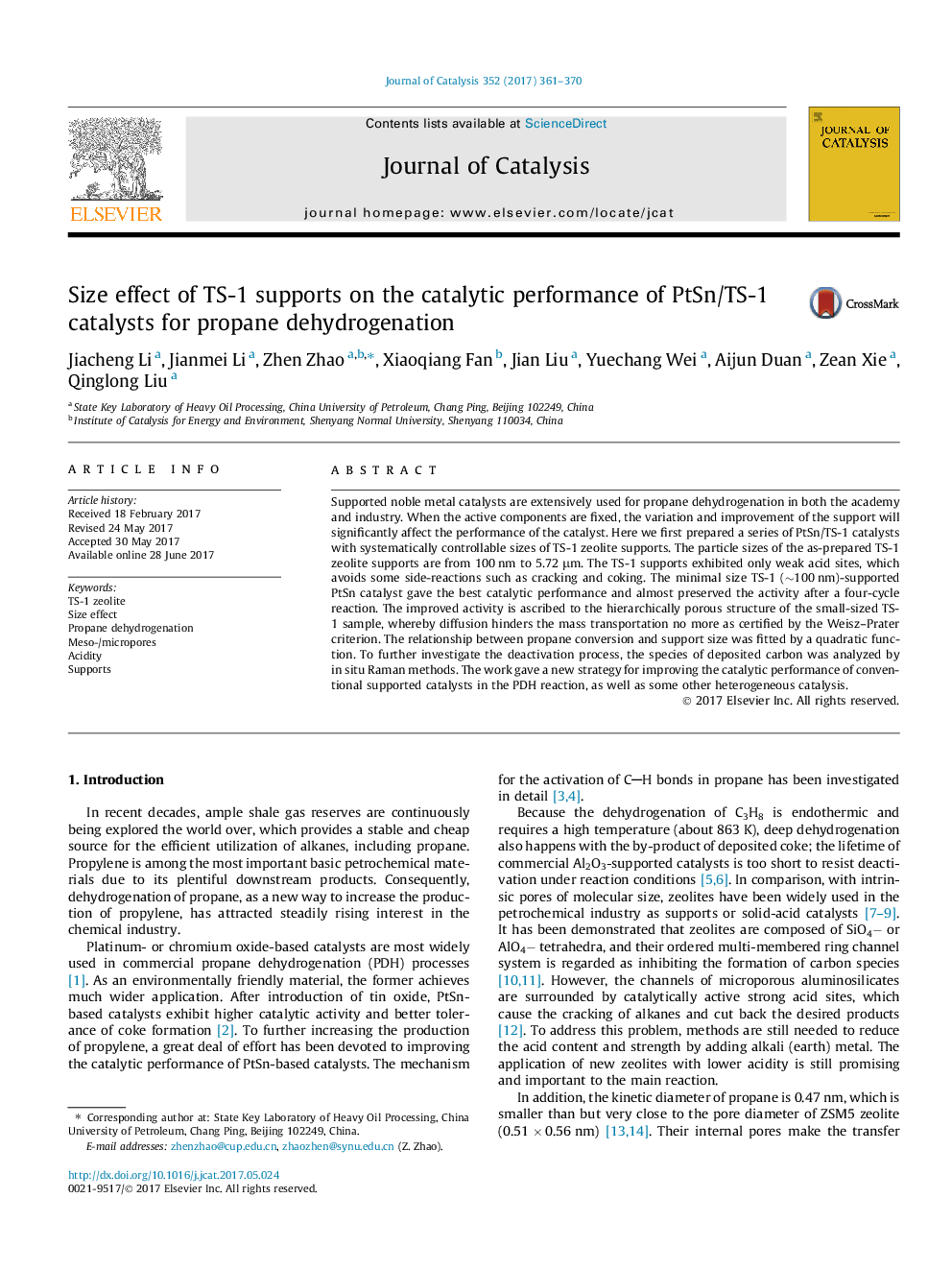| Article ID | Journal | Published Year | Pages | File Type |
|---|---|---|---|---|
| 6455411 | Journal of Catalysis | 2017 | 10 Pages |
â¢A novel PtSn/TS-1 catalyst with lower acidity was used in the PDH reaction.â¢The crystal diameters of TS-1 support were systematically controlled.â¢PtSn/TS-1(100 nm) shows the highest activity due to having the lowest diffusion resistance.â¢PtSn/TS-1(100 nm) shows good cycle activity and the deposited carbon is also analyzed.
Supported noble metal catalysts are extensively used for propane dehydrogenation in both the academy and industry. When the active components are fixed, the variation and improvement of the support will significantly affect the performance of the catalyst. Here we first prepared a series of PtSn/TS-1 catalysts with systematically controllable sizes of TS-1 zeolite supports. The particle sizes of the as-prepared TS-1 zeolite supports are from 100 nm to 5.72 μm. The TS-1 supports exhibited only weak acid sites, which avoids some side-reactions such as cracking and coking. The minimal size TS-1 (â¼100 nm)-supported PtSn catalyst gave the best catalytic performance and almost preserved the activity after a four-cycle reaction. The improved activity is ascribed to the hierarchically porous structure of the small-sized TS-1 sample, whereby diffusion hinders the mass transportation no more as certified by the Weisz-Prater criterion. The relationship between propane conversion and support size was fitted by a quadratic function. To further investigate the deactivation process, the species of deposited carbon was analyzed by in situ Raman methods. The work gave a new strategy for improving the catalytic performance of conventional supported catalysts in the PDH reaction, as well as some other heterogeneous catalysis.
Graphical abstractDownload high-res image (106KB)Download full-size image
